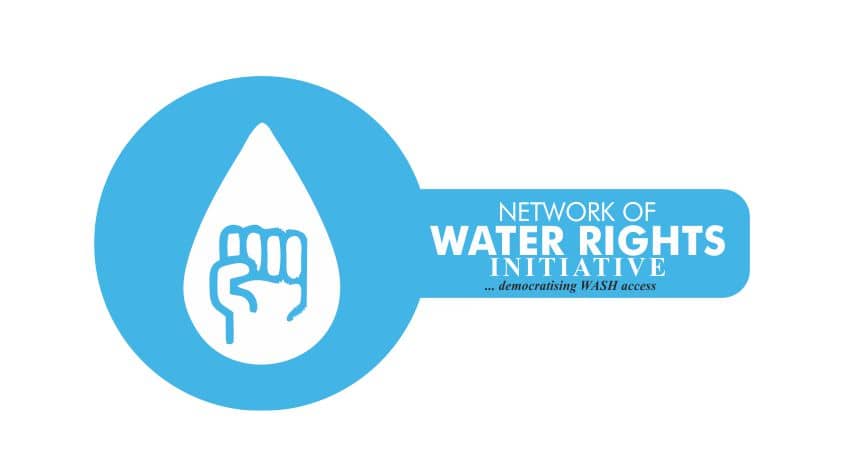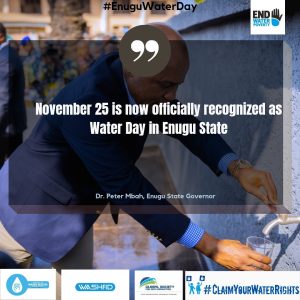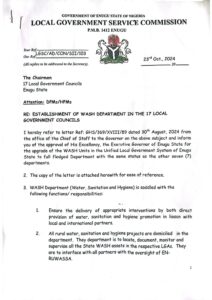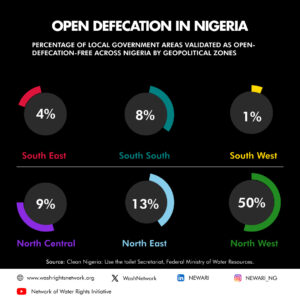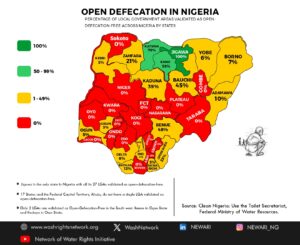In a bid to appropriately integrate and reflect current #WASH realities that align with recent innovations resulting from the COVID-19 pandemic, Climate Change, universal declarations, and global best practices, the Enugu State Government in collaboration with development partners, NGOs and the media, are currently reviewing the state #WASH Policy, using the African Sanitation Policy Guidelines (ASPG) as a Guide. This collaborative effort aims to create a robust and responsive WASH policy that addresses the evolving needs of the state.
The ongoing review of the State WASH policy is poised to usher in a new era of enhanced coordination, planning, financing, and system strengthening in the state’s WASH sector programs. This milestone will address the existing gaps in service coverage, as highlighted in the 2021 #WASHNORMS report.

Taking cognizance of the crucial role of the media and CSOs in this process of policy review, the Week 3 episode of the #EnuguWASHRadio series, focused on the roles that the media and CSOs are playing in influencing WASH policy and ensuring inclusive reforms in the State’s WASH Sector. The Resource Persons comprise Mr. Lawrence Njoku (South East Bureau Chief, Guardian Newspaper) and Mr. Ruben Onyeishi (Senior Special Assistant to the Governor on New Media) who represented the private and government media agencies respectively, as well as Mrs. Patience Ezeaku (Vice President, Women Support Women Community Network) a representative of civil society organization in the state.
The Resource persons emphasized the role media has been playing in advancing access to water and sanitation in Enugu State, some of which include; documenting the voices of communities through water and sanitation documentaries and reportage of WASH-related stories, all of which are targeted at amplifying the voices of the underserved, promoting government accountability, and creating public awareness and participation on water and sanitation issues and developments across the state.


The civil society representative on the other hand, cited the #EnuguWASHRadio series as one of the ways that the civil society is promoting inclusive development in the State’s WASH sector and curbing the trend of open defecation in the state. She further charged CSOs to work in synergy to amplify advocacy and sensitization efforts aimed at creating awareness and triggering the populace to end open defecation in the state.
Listeners who called in to the radio programme called for more sustained sensitization and awareness creation by the Government, Civil Society Organizations and media organizations in order to adequately address this issue of open defecation across Enugu State.
In concluding the episode, the resource persons unanimously stressed that ending open defecation and making clean water available for residents of Enugu state is not a ‘one-way traffic’, urging the citizens to take ownership, protect and support WASH initiatives in their respective communities.
Tune in to #SolidFM 100.9, Enugu, this week by 9AM (GMT+1) to join us on yet another interesting #WASH discourse.
